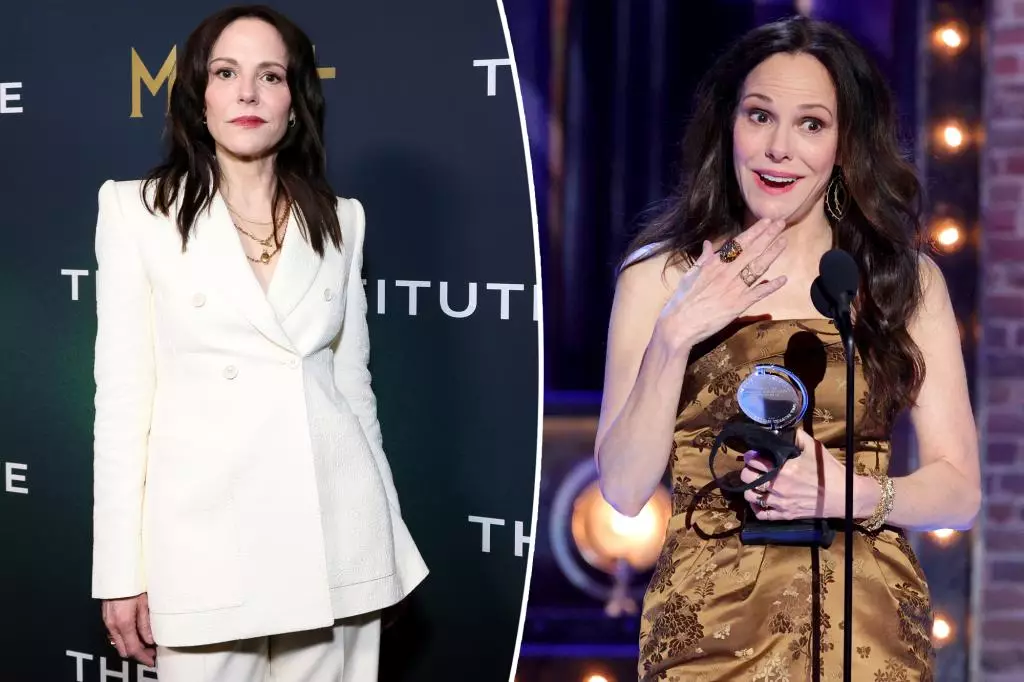In an era dominated by instant connectivity and relentless digital tracking, the act of avoiding one’s own online presence can be seen as a rebellious act of self-preservation. Mary-Louise Parker’s candid admission that she’s “probably one of the few people” who refrains from clicking her Wikipedia page reveals an insightful resistance to the superficial allure of fame’s curated narrative. Rather than seeking validation or validation through constant self-review, Parker exemplifies a conscious choice to remain grounded in her reality. She perceives checking her credits, awards, or roles on a digital profile as potentially destructive, suggesting that self-awareness fueled by external validation can distort one’s true sense of identity.
This perspective challenges modern society’s obsession with quantifying achievement, where metrics like awards or fame are often perceived as the ultimate benchmarks of success. Parker’s stance hints at a deeper understanding: authentic self-worth isn’t found in external accolades but in personal growth, genuine relationships, and a clear conscience. Her refusal to indulge in her own digital footprint is a powerful reminder that true confidence stems from within, not from the fleeting applause of online audiences.
Portrait of an Actress Embracing Her Evolution
Throughout her career, Parker has traversed a wide spectrum of roles—each one a testament to her versatility and courage as an artist. From her performances in classic films like “Fried Green Tomatoes” to her iconic role in “Weeds,” she demonstrates a refusal to be pigeonholed or defined solely by her past successes. Her recent works, including roles in blockbuster films like the “Red” franchise and her stage appearances on Broadway, underscore her dedication to continuous reinvention.
What stands out, however, is her ability to choose diverse projects that challenge her creatively. For instance, her portrayal of Ms. Sigby in “The Institute,” a Stephen King adaptation, introduces her audience to a character driven by unwavering conviction—yet, Parker’s acknowledgment of her character’s dangerous moral blindness hints at her nuanced understanding of human complexity. She recognizes that characters—like people—are often driven by deeply held beliefs that may not align with societal norms, yet they resonate because they reflect real psychological dilemmas.
Reflections on Morality and the Power of Perspective
Parker’s insights into her current role reveal a broader commentary on morality’s subjective nature. Her observation that “dangerous people” are often those “steadfastly directed for the cause” echoes the eternal debate about the moral compass. It’s a reminder that conviction, while admirable, can be a double-edged sword—especially when intertwined with skewed morality. People convinced they are outrightly “saving” others or doing “the greater good” can inadvertently become agents of chaos, blinded by their unwavering certainty.
Her commentary invites a critical examination of how we perceive morality in ourselves and others. Are we ever truly impartial, or are we all susceptible to the influence of our deepest beliefs? Parker’s persona, both on and off the screen, exemplifies the importance of introspection and humility when assessing one’s own motives and actions. Her deliberate choice not to indulge in her fame—combined with her thoughtful analysis of complex characters—serves as a testament to her authenticity and depth.
In embracing her evolution as an artist and individual, Parker embodies the empowering truth that authenticity often requires deliberate disinterest in superficial accolades. It’s a reminder that genuine power resides in understanding oneself beyond the labels, awards, or social constructs—and that sometimes, the greatest act of rebellion is simply choosing to remain unseen in the vast digital landscape.

